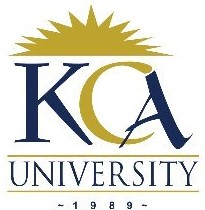
UNIVERSITY EXAMINATIONS: 2019/2020
ORDINARY EXAMINATION FOR THE DIPLOMA IN BUSINESS
INFORMATION TECHNOLOGY
DBIT 503: PRINCIPLES OF MARKETING
DATE: MAY 2020 TIME: 6 HOURS
INSTRUCTIONS: Answer ALL Questions.
SECTION B: 20 MARKS
a) Explain how marketing decisions influences all other departments. (10Marks)
b) Assume you have a business; demonstrate how you can distinguish your business from
competitors. (4Marks)
c) Explain how you can make your customers loyal to your business. (6Marks)
SECTION C: 20 MARKS
MANAGEMENT CASE STUDY
Is Nike a Brand or a Goddess?
Spain’s supreme court has barred Nike Inc. from using its trade name on sports apparel sold in
Spain, illustrating one of the perils firms face when trying to increase their global reach. Late in
1999, the court ruled that Cidersport SA, a sporting goods concern based in northeastern Spain,
has owned the rights to use the “Nike” name on sportswear since 1932. Furthermore, the court
said, Nike Inc. did not invent the term “Nike”. Nike is the name of the Greek winged goddess of
victory and therefore has long been part of the vocabulary of the Western world.
The Spanish court said that Nike International LTD. OF Beaverton, Oregon, cannot
manufacture, warehouse, import, export, or use the trade name in apparel, business documents,
or advertising for products in Spain that ate similar or identical to those of Cidersport. The
Spanish ruling could have broader implications for Nike outside Spain; Cidersport sait its owns
trademark rights to the Nike name in Cuba, Poland, Camerron, Tunisia, and Andorra and that it
has applied for trademark rights in other countries.
Nike isn’t the only company to encounter competing brand –name users overseas. For
example, beer giant Anheuser-Busch Companies, Inc., of St. Louis, maker of Budweiser beer,
wrangled for years in European courts with a small Czech brewery that sold a beer called
“Budweiser Budvar.”
Discussion questions:
a) What does a U.S brand name like Nike convey in its home market? Do you think it would
have the same meaning in a different culture overseas? What cultural factors affect
consumers’ perceptions of a brand? (6Marks)
b) Once a company learns that its trade name is invalid in a foreign market, what alternatives
does it have? What are the pros and cons of each? (8Marks)
c) One commentator notes that “Nike’s case shows how, as companies expand into overseas
markets and establish a global brand, they sometimes learn that the process of obtaining
rights to brands overseas can fickle and costly.” Why do you think claiming exclusive rights
to a brand is harder internationally? What implications does this have for firms trying to
expand in foreign markets?
(6Marks)
